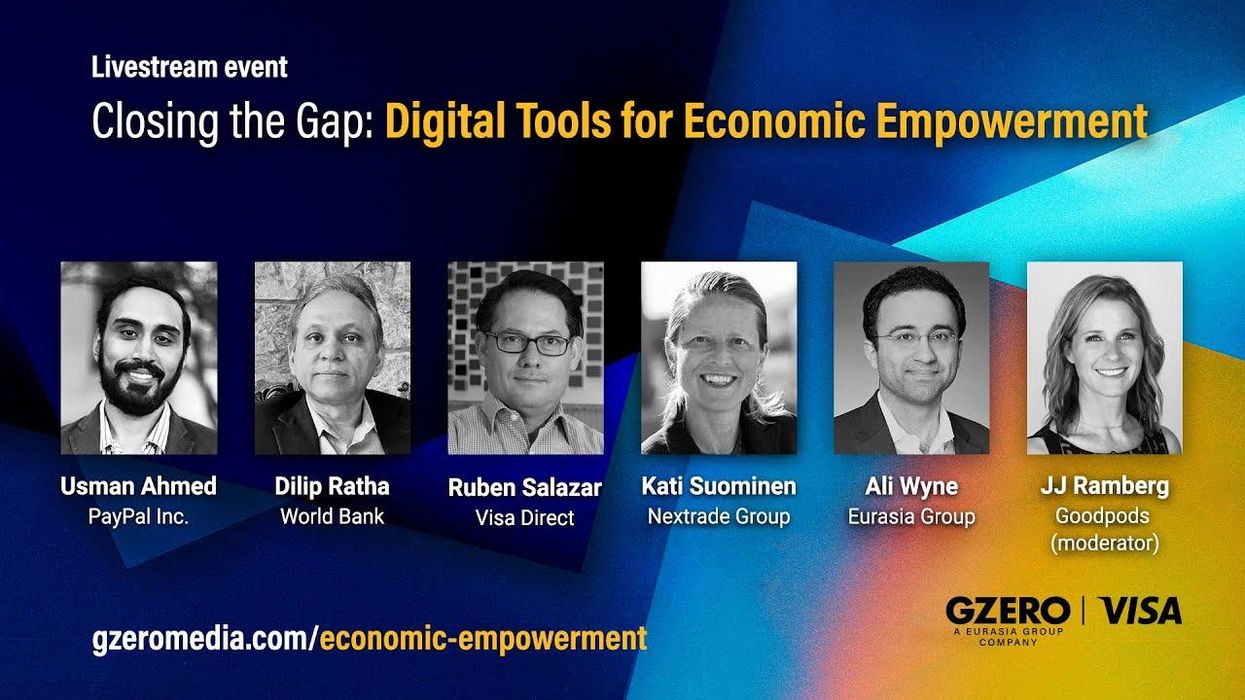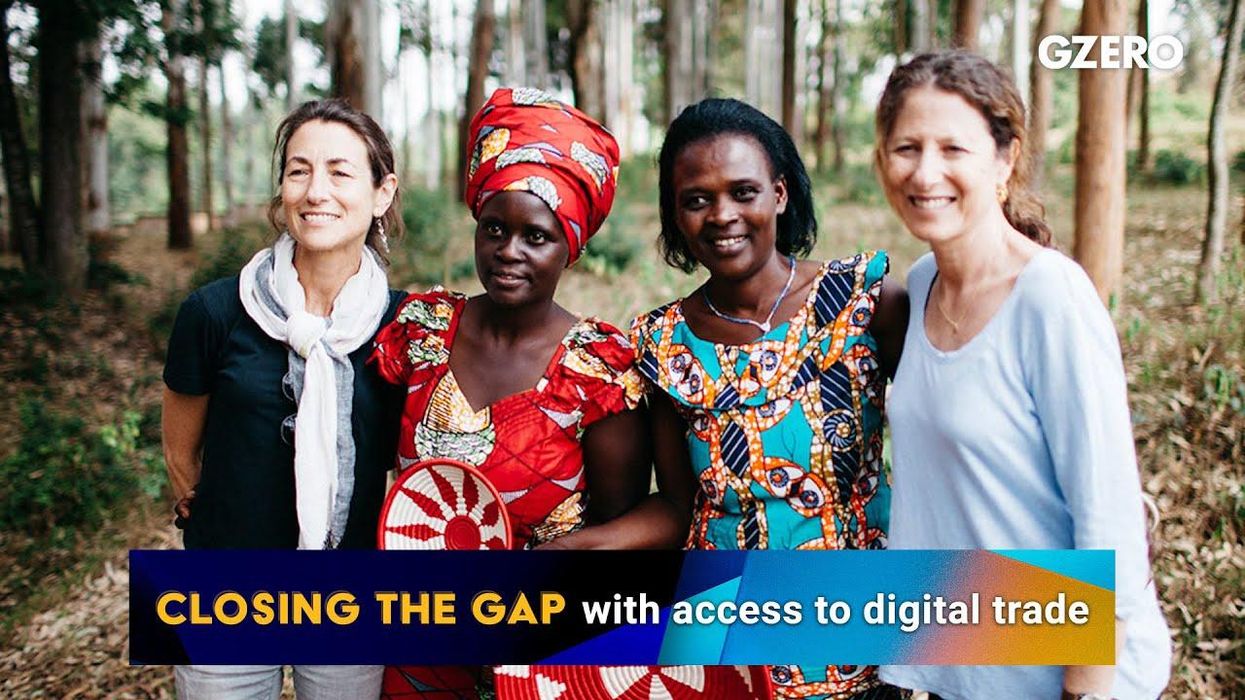Closing the Gap
Lowering costs of poverty with digital & economic access
Expanding access to digital tools for individuals and small businesses is a no-brainer, but easier said than done. So, what can we do to expand digital trade further, come up with fairer and safer remittances and digital payments, and push to include everyone in tomorrow's digital-first economy? To get some answers, GZERO hosted in partnership with Visa the livestream conversation "Closing the Gap: Digital Tools for Economic Empowerment."
Oct 20, 2022


